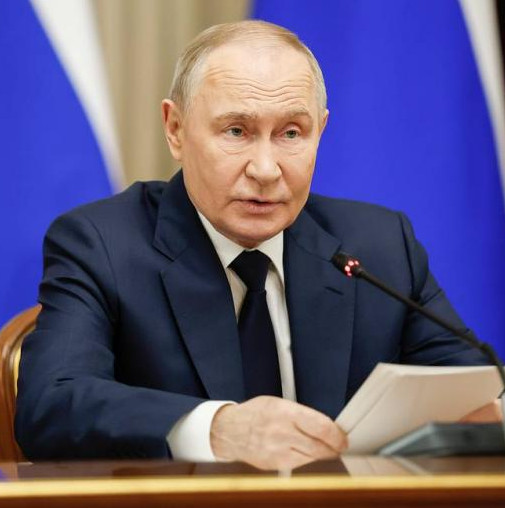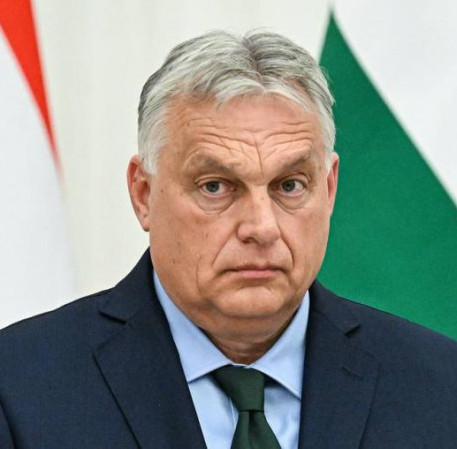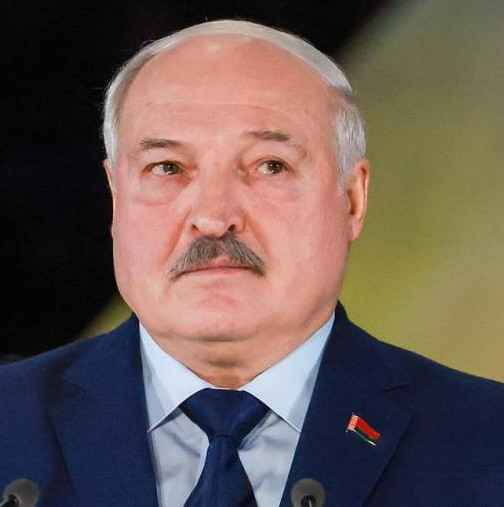Integration
From Kazakhstan to India: Will There Be a Place for Russia?
Russia’s most important geopolitical and diplomatic challenge in the next twenty years
Yury Krupnov, Chairman of Supervisory Board of the Institute for Demography, Migration and Regional Development

Russia’s most important geopolitical and diplomatic challenge in the next twenty years is the transformation of the territory of Central Asia and the Middle East - from Kazakhstan to the north of India and the Persian Gulf – into a fundamentally new macroregion and geographic fact. It will be notable for stability and industrial boom on the basis of rapid industrialization and systemic cooperation between Russia, China, India, Iran, Afghanistan, Pakistan, Mongolia, Kazakhstan, Turkmenistan, Kyrgyzstan, Tajikistan, Azerbaijan and Turkey.
The key meaning of this macroregion should be the creation of a unified geo-economic and geocultural space purposefully free from any geo-political redivisions and divisions as well as from selfish geostrategic objectives of individual countries. The macroregion should be transferred from a place of geopolitical conflicts and tool use in favor of individual countries into a state of the main body of the Central Eurasian common market and a ground of dialogue between the deep-rooted civilizations and peoples. It makes sense to call the future macroregion ‘a New Middle East’ (NME). It is in a position to address the following problems critical to Russia and neighboring countries:
- restore Afghanistan as a united, sovereign and economically efficient state, which not only stops the export of instability, narcotics and terrorism, but also becomes a model state of rapid industrialization and development;
- provide lasting cooperative security and stability;
- demilitarize extra-regional foreign powers on the territory of regional countries;
- organize a single economic and transport and logistics space, connecting Russia's Siberia with the ‘southern seas’ (the Arabian Sea and Persian Gulf), and in course of time - a land bridge between the Arctic and Indian oceans;
-create a single water infrastructure for the southern countries of the region to address critical water issues;
- create a single educational space (similar to the Bologna Agreement), in particular, a network of colleges and schools of joint development, activity-based educational content;
- prevent the establishment in Afghanistan and Central Asia of the U.S. and NATO springboard to control China;
- organize a fundamental geographical structure that conceptually would do not admit the main Uralian fault and the detachment of Russia’s Eastern Siberia and Far East from the European part;
- finally, not to allow U.S. and NATO war against Iran as a participant of the New Middle East construction.
It is obvious that the NME construction is vital for Russia. Geopolitics practitioners’ and theoreticians’ diffused opinion inclines toward the need to create on basis of the new post-Soviet states of Central Asia and Northern provinces of Afghanistan ‘buffer’ zones, which supposedly “hold away the Russians from the most conflict sectors of the Middle East.” However, attempts to separate from the Middle East directly lead, and this is confirmed by trends of the last ten years, to an aggravation of the situation in the Middle East just in the direction of Russia and creation around it of a single and growing narco-terrorist conglomerate including the Central Asian states and the most developed Russian regions.
Russia will not be able to insulate itself from the ‘remote’ problems - Afghanistan's ‘tectonic’ instability has already come to us, and the export of instability outside Russia's new project position will only increase. And there is the only alternative here - to create the NME, which will assume the role of a factor for positive cardinal reorganization of geoculture, geo-economics, geopolitics and geo-strategy of Eurasia, as well as the planet in whole.
In this case, geoculture and geo-economics during the NME project implementation are absolute priorities.
The NME is not possible without the cultivation of a new system of values which would grow up around the principle of dialogue between civilizations and nations in the name of joint development. In addition, to implement the NME it is necessary to build a ‘common market’ - a common economic community realizing for a population of about 400 million people (which is comparable with the population of the EU) programs of diversified industrialization and developing new living standards.
Of course, the industrialization types in the NME different spaces will not coincide. If in the case of Siberia the point at issue should be about the organization of tertiary industrialization, i.e. based on a breakthrough to the seventh technological structure, the development of technologies for purposeful improvement of the quality of life and building a knowledge society, then for some southern areas the primary industrialization will be of paramount importance.
The basis of a common economic space should be unified infrastructures of electricity, irrigation and water supply, management of transport and logistics flows, providing employment opportunities.
The organization of the main line railroad Siberia - Kazakhstan - Turkmenistan – Iran will be of key importance; it will arise after putting into operation of the railway almost 800 kilometers long between the Kazakh station Uzen to Turkmen stations Bereket, Etrek and Gurgen and the Trans-Afghan main line from the Iranian city of Mashhad (Iran), via Herat and Kandahar to Pakistani city of Quetta.
Creating a New Middle East is in fact a ‘material’ practical object of activity of the Shanghai Cooperation Organization (SCO), which in a difficult creative research in recent years has came to the need to formulate specific geographic goals and objectives. It has most clearly manifested itself in the last SCO summit’s decision “as part of the efforts in the Afghan area to intensify the work of the SCO-Afghanistan Contact Group, to begin practical preparations for convening under the auspices of the SCO special conference on Afghanistan to discuss issues on joint countering terrorism, drug trafficking and organized crime”, as well as in the general spirit and in the letter of the Dushanbe Declaration of Heads of SCO Member States of August 28, 2008.
For Russia, the doctrine of the NME is among other things a good ground for adoption of the development export doctrine and Russia’s Eastern policy organized in a new way.
Exporting democracy has shown not only its violent nature, but also its apparent ineffectiveness. Moreover, exporting democracy in practice has also proved to be export of financial and economic crisis together with military conflicts, i.e. guaranteed instability export.
Russia has a unique opportunity to highlight its traditional role of a factor of recovery and development as a principle of its foreign policy. Unfortunately, the unfounded criticism of the Soviet past and a concocted imperia complex of Russia have disavowed and practically brought to naught in the public mind the center line of Russia’s international activities - its self-forgetful efforts in many instances to raise the countries being under its wardship.
Today, it is necessary not only to restore historical justice but also to bring our ancestral line to the principle of joint development, co-development and, accordingly, to the development export as a purposeful transfer to partner countries of the full system, which allows countries to make qualitative leaps and breakthroughs.
The NME is an ideal space of development and full implementation of the doctrine of development and co-development export.
Russia does have prerequisites for such a doctrine at the level of political leadership.
The key meaning of this macroregion should be the creation of a unified geo-economic and geocultural space purposefully free from any geo-political redivisions and divisions as well as from selfish geostrategic objectives of individual countries. The macroregion should be transferred from a place of geopolitical conflicts and tool use in favor of individual countries into a state of the main body of the Central Eurasian common market and a ground of dialogue between the deep-rooted civilizations and peoples. It makes sense to call the future macroregion ‘a New Middle East’ (NME). It is in a position to address the following problems critical to Russia and neighboring countries:
- restore Afghanistan as a united, sovereign and economically efficient state, which not only stops the export of instability, narcotics and terrorism, but also becomes a model state of rapid industrialization and development;
- provide lasting cooperative security and stability;
- demilitarize extra-regional foreign powers on the territory of regional countries;
- organize a single economic and transport and logistics space, connecting Russia's Siberia with the ‘southern seas’ (the Arabian Sea and Persian Gulf), and in course of time - a land bridge between the Arctic and Indian oceans;
-create a single water infrastructure for the southern countries of the region to address critical water issues;
- create a single educational space (similar to the Bologna Agreement), in particular, a network of colleges and schools of joint development, activity-based educational content;
- prevent the establishment in Afghanistan and Central Asia of the U.S. and NATO springboard to control China;
- organize a fundamental geographical structure that conceptually would do not admit the main Uralian fault and the detachment of Russia’s Eastern Siberia and Far East from the European part;
- finally, not to allow U.S. and NATO war against Iran as a participant of the New Middle East construction.
It is obvious that the NME construction is vital for Russia. Geopolitics practitioners’ and theoreticians’ diffused opinion inclines toward the need to create on basis of the new post-Soviet states of Central Asia and Northern provinces of Afghanistan ‘buffer’ zones, which supposedly “hold away the Russians from the most conflict sectors of the Middle East.” However, attempts to separate from the Middle East directly lead, and this is confirmed by trends of the last ten years, to an aggravation of the situation in the Middle East just in the direction of Russia and creation around it of a single and growing narco-terrorist conglomerate including the Central Asian states and the most developed Russian regions.
Russia will not be able to insulate itself from the ‘remote’ problems - Afghanistan's ‘tectonic’ instability has already come to us, and the export of instability outside Russia's new project position will only increase. And there is the only alternative here - to create the NME, which will assume the role of a factor for positive cardinal reorganization of geoculture, geo-economics, geopolitics and geo-strategy of Eurasia, as well as the planet in whole.
In this case, geoculture and geo-economics during the NME project implementation are absolute priorities.
The NME is not possible without the cultivation of a new system of values which would grow up around the principle of dialogue between civilizations and nations in the name of joint development. In addition, to implement the NME it is necessary to build a ‘common market’ - a common economic community realizing for a population of about 400 million people (which is comparable with the population of the EU) programs of diversified industrialization and developing new living standards.
Of course, the industrialization types in the NME different spaces will not coincide. If in the case of Siberia the point at issue should be about the organization of tertiary industrialization, i.e. based on a breakthrough to the seventh technological structure, the development of technologies for purposeful improvement of the quality of life and building a knowledge society, then for some southern areas the primary industrialization will be of paramount importance.
The basis of a common economic space should be unified infrastructures of electricity, irrigation and water supply, management of transport and logistics flows, providing employment opportunities.
The organization of the main line railroad Siberia - Kazakhstan - Turkmenistan – Iran will be of key importance; it will arise after putting into operation of the railway almost 800 kilometers long between the Kazakh station Uzen to Turkmen stations Bereket, Etrek and Gurgen and the Trans-Afghan main line from the Iranian city of Mashhad (Iran), via Herat and Kandahar to Pakistani city of Quetta.
Creating a New Middle East is in fact a ‘material’ practical object of activity of the Shanghai Cooperation Organization (SCO), which in a difficult creative research in recent years has came to the need to formulate specific geographic goals and objectives. It has most clearly manifested itself in the last SCO summit’s decision “as part of the efforts in the Afghan area to intensify the work of the SCO-Afghanistan Contact Group, to begin practical preparations for convening under the auspices of the SCO special conference on Afghanistan to discuss issues on joint countering terrorism, drug trafficking and organized crime”, as well as in the general spirit and in the letter of the Dushanbe Declaration of Heads of SCO Member States of August 28, 2008.
For Russia, the doctrine of the NME is among other things a good ground for adoption of the development export doctrine and Russia’s Eastern policy organized in a new way.
Exporting democracy has shown not only its violent nature, but also its apparent ineffectiveness. Moreover, exporting democracy in practice has also proved to be export of financial and economic crisis together with military conflicts, i.e. guaranteed instability export.
Russia has a unique opportunity to highlight its traditional role of a factor of recovery and development as a principle of its foreign policy. Unfortunately, the unfounded criticism of the Soviet past and a concocted imperia complex of Russia have disavowed and practically brought to naught in the public mind the center line of Russia’s international activities - its self-forgetful efforts in many instances to raise the countries being under its wardship.
Today, it is necessary not only to restore historical justice but also to bring our ancestral line to the principle of joint development, co-development and, accordingly, to the development export as a purposeful transfer to partner countries of the full system, which allows countries to make qualitative leaps and breakthroughs.
The NME is an ideal space of development and full implementation of the doctrine of development and co-development export.
Russia does have prerequisites for such a doctrine at the level of political leadership.


